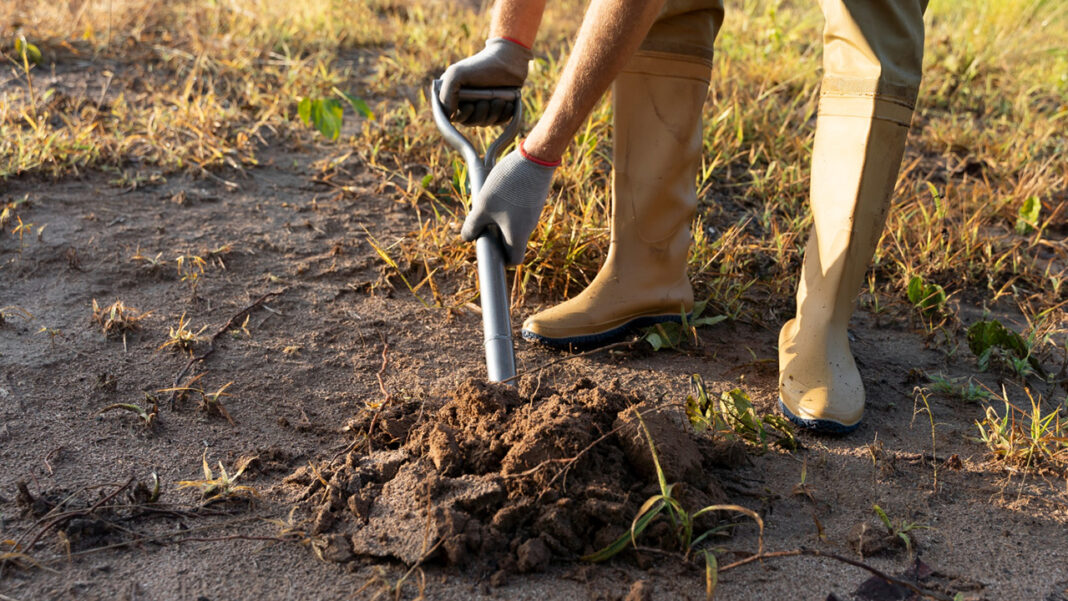Imagine discovering a gold deposit right in your own backyard. You may be ecstatic about the potential fortune and start making plans for how you will spend it. But, before you go any further, you need to determine if the gold you found is legally yours or not.
Understanding Property Ownership and Mineral Rights
The United States has a unique legal framework when it comes to property ownership and mineral rights. In many countries, landowners are only entitled to the surface area of their property, while the government retains ownership of all subsurface minerals. However, in the US, landowners have the opportunity to own both surface and mineral rights.
Determining whether you own the gold discovered on your property depends on several factors outlined below:
- Ownership of mineral rights
- State laws and regulations
- Presence of federal lands and mining claims
Ownership of Mineral Rights
Mineral rights are the legal rights to explore, extract, and sell minerals found beneath the surface of a property. If you possess both surface and mineral rights, you have what is known as a “fee simple estate”. This means that you have complete control over the land and the minerals underneath it.
In case you only hold surface rights, with someone else owning the mineral rights, then finding gold would not automatically make it yours. The owner of the mineral rights would have the primary claim to the discovered gold. To ascertain which category you fall under, you should review the deed to your property, any previous conveyances, and consult an attorney specializing in property law.
State Laws and Regulations
Each state has its own regulations and laws concerning mineral rights and mining activities. Some states have strict rules on gold mining, while others offer more flexibility.
California
For instance, California, a historically significant gold-mining state, requires private landowners to obtain permits from the relevant authorities before any mining activities can commence. This is to ensure that environmental protection standards are adhered to during mining operations.
Alaska
In Alaska, another gold-rich state, landowners with both surface and mineral rights have greater freedom to mine without applying for special permits. However, they must still adhere to guidelines aimed at minimizing harm to the environment.
To understand your state’s specific laws and regulations regarding gold discoveries and mining activities, it is essential to consult an attorney or the local government agencies responsible for natural resources.
Federal Lands and Mining Claims
If your property is located within federal lands or close to them, there may be additional complications in determining ownership of discovered gold. Federal lands can include national forests, parks, and other areas managed by the Bureau of Land Management (BLM) or the United States Forest Service (USFS). In these instances, federal law prevails over state law.
Mining Claims
Historically, individuals could stake mining claims on federally-owned lands if they discovered valuable minerals. These claims granted the holder exclusive rights to explore and extract minerals from the area designated within the claim. If you find gold on your property that falls within the boundaries of an active mining claim, it belongs to the claim owner regardless of your surface or mineral rights.
It’s crucial to research whether there are any existing mining claims on or near your property. You can do this by checking with the local BLM or USFS offices, as well as consulting maps and records that detail current mining claims.
What to Do If You Find Gold on Your Property
If you discover gold on your land and determine that it’s yours to keep based on your property rights, state laws, and federal regulations, there are still several steps you need to take to safeguard your newfound wealth. These include:
- Secure the area: Ensure that your property is securely fenced and protect the site where the gold was discovered from unauthorized access.
- Contact an attorney: Consult a legal expert who specializes in mineral and property rights to help you navigate the complexities surrounding your gold discovery.
- Appraise the value: Hire a professional appraiser to assess the value of the gold deposit so you can make informed decisions about its potential use or sale.
- Obtain permits: If required by state law, obtain the necessary permits for exploration and extraction activities.
- Consider environmental impact: Always abide by guidelines and regulations designed to minimize harm to the environment during mining activities.
In conclusion, finding gold on your property can be both exciting and challenging. By understanding the legal frameworks concerning property and mineral rights, state laws, and federal regulations, you can better determine whether the treasure trove is actually yours to keep.













